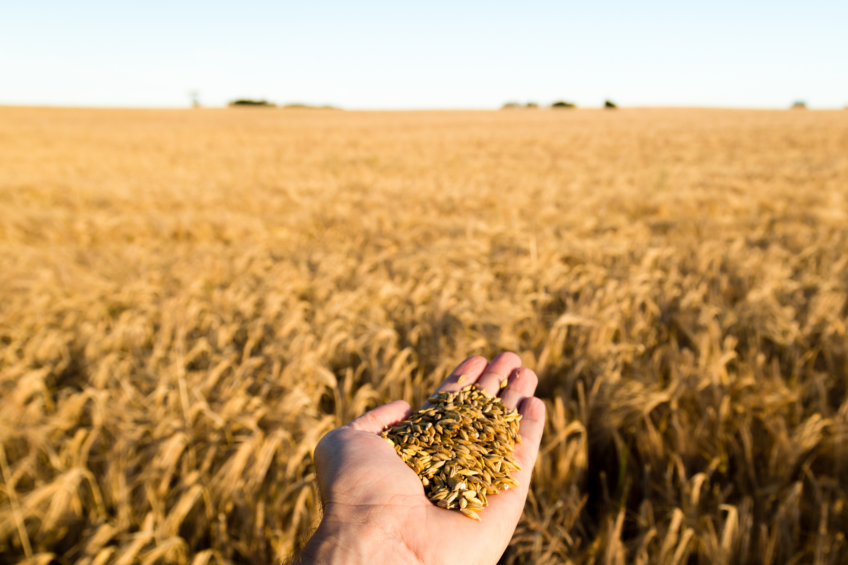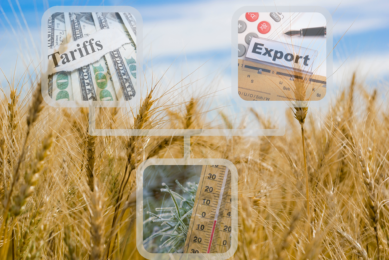UK wheat, barley and oil seed rape yields lower than 5 year average

Disease challenges and poor weather are continuing to cause issues for UK cereal farmers, who are seeing lower yields of wheat, winter barley and oil seed rape.
Analysis by the Agriculture and Horticulture Development Board, based on farmer reports, has however found that recent warmer, dry weather means that crops in many regions have been harvested at moistures meaning little has required drying.
Winter Barley

Harvesting of winter barley is all but complete with the average reported winter barley yield just 6.3t/ha – down 11% on the 5-year average.
There is a significant deviation in yields between regions. Yields in the Easter region were 22% higher than average, but were down in all other regions except the South East, where the 5-year average level was seen. The largest decline in winter barley yield was found in the East Midlands, with yields 21% below average.
Quality has generally been satisfactory, although there have been some issues with lower bushel weights and subsequently lower screenings, as well as some comments regarding increased admix, primarily volunteer cereals or secondary growth.
Winter Oil Seed Rape
This summer’s harvest is almost complete but yields are again down for all areas except for the Eastern region. However, eastern farms surveyed have generally lower average yields due to historic cabbage stem flea beetle challenges. Yield declines this season are not entirely due to pest pressure, with clubroot also posing problems.
Yields are down 9% overall across the UK, at an average of 2.93t/ha. The greatest decline in yields was reported in Yorkshire and the Humber, down 29% on the 5-year average, but declines of more than 20% were also seen in the West Midlands and South West. Yields were slightly better on lighter ground.
Oil content was reported to be at 45%, with very few samples below 44%. Specialist WOSR crops such as High Oleic and Low Linolenic and High Erucic Acid Rape varieties have reportedly produced oil contents of greater than 47%.
Wheat
More than a third of the UK’s wheat harvest has now been completed (37%) with greatest progress in the East Midlands (65%) and South East (48%). This year progress reflects the total wheat area, including spring wheat as the extreme weather meant some winter varieties were planted later than usual. There was also a greater spring wheat area than usual.
While progress still looks to be ahead of both last year and the 5-year average, yields of just 7.5t/ha are down 7% on the 5-year average with lower yields reported in all areas, except the Eastern region, where the 5-year average was met.
Oats
About a fifth of the national crop has been harvested (14 August) with winter oat yields also reported as being disappointing – down 6%. Quality has been good with most samples meeting milling specification.
The AHDB said grass weed pressures had bene high, seen through an increased prevalence of ergot in some samples. Ergot has mainly been seen as coming from grass weeds rather than cereal crops. There are generally high levels of grass weeds and volunteer cereals within crops, including blackgrass, ryegrass and brome.











